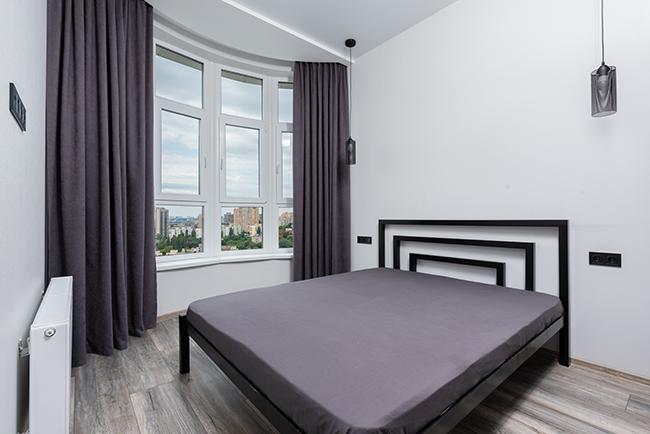OSMD: Czech Landlords cannot be responsible for the temperature in apartments
According to the Civic Association of Homeowners in the Czech Republic (OSMD), landlords cannot be responsible for compliance with the temperature regulation in individual apartment spaces. It is not clear how they should verify the temperature, moreover, tenants have the right to undisturbed use of the apartment. The main motivation for savings for everyone will be the current regulation on new deposits for gas and electricity, OSMD chairman Milan Krček answered this. The Association of Czech and Moravian Housing Cooperatives and the Tenants' Association of the Czech Republic also pointed out the problematic possibilities of controlling the temperature in apartments.
The Ministry of Industry and Trade (MPO) has prepared a draft decree on rules for heating, which would come into force in the event of the declaration of emergency prevention or emergency in the heating industry. It expects to heat buildings to lower temperatures. For example, people should heat living rooms to 18 degrees Celsius instead of the current 20 degrees, bathrooms should be heated to 19 instead of 24 degrees Celsius. On Friday, the MPO published a post on Twitter "How the inspections will take place according to the new decree on heating", but subsequently deleted it. According to another post, the owners of the building should be responsible for setting the temperatures correctly. In a previous tweet, the department stated, among other things, that households will never be fined for non-compliance with the regulation.
According to Krček, most OSMD members rent apartments with their own gas or electric boiler or local heaters. "In this case, compliance with any ordinance of this type will be solely at the discretion of each household," he said. He added that some landlords operate a small boiler room in their houses, so the apartments are connected to the central heat supply system and possibly also hot water. Under these circumstances, according to Krček, the owner can comply with the regulation on the heating period or reduction of performance during the night.
"Any 'responsibility' of the landlord for maintaining the prescribed temperature in the various living spaces of the apartments is completely out of line with reality. Should the landlord walk around the individual apartments with a thermometer in his hand every day, or how is that supposed to be?" asks Krček.
The possibility of inspecting apartments is limited or even impossible according to the Association of Czech and Moravian Housing Cooperatives. The director of the methodological department of the union, Martin Hanák, points out that in most rooms of apartment buildings there are no meters that would allow the temperature to be checked, because the houses take heat centrally. There are only thermostatic valves on the radiators, which can only be used to correct the temperature by feel.
"Within an apartment building, it is possible to reduce the central supply or the intensity of heating overall, or it is possible to limit the time of hot water supply. However, in no case do the building administrators have the opportunity to force and possibly control the users of the apartments to see if they meet the requirements of the decree being prepared," Hanák pointed out.
Jan Vozárik, vice-chairman of the Association of Tenants of the Czech Republic, evaluates the proposal as ill-conceived. "It doesn't matter just because it's impossible in apartments," he emphasized. According to him, it would be technically possible to regulate the temperature in apartments remotely, but it would require huge interventions in the heating systems of houses and other devices. "And no one will pay for that," added Vozárik. At the same time, he questioned the tolerability of low temperatures for household residents.
Through the decree, the Ministry of Industry and Trade wants to ensure legislative conditions that will make it possible to respond to a possible cut-off in gas supplies from Russia, and to achieve the desired savings. The office stated that the determination of individual temperatures was discussed with representatives of the Ministry of Health. The decree is in the interdepartmental comment procedure until August 19, after which it should be assessed by the Legislative Council of the Government, according to the MPO.
Source: MPO, OSMD and CTK









